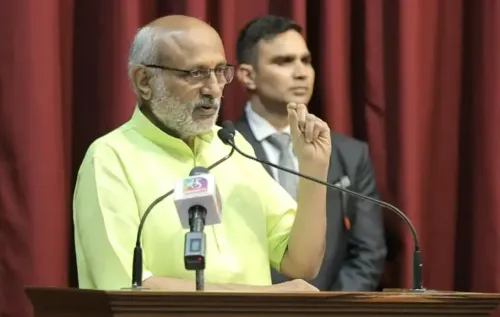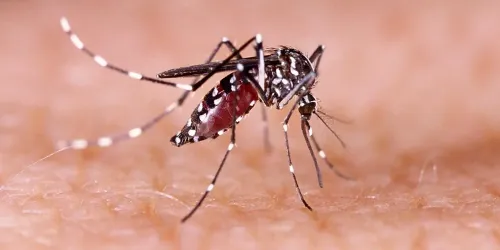How is Mozambique Planning to Eliminate Cholera by 2030?

Synopsis
Key Takeaways
- Mozambique launches a $490 million Cholera Elimination Plan.
- Goal to eradicate cholera by 2030.
- Funding from multiple sources including the state budget and partnerships.
- Cholera remains a significant public health challenge.
- Access to safe water and sanitation is crucial for prevention.
Maputo, Sep 17 (NationPress) The Mozambique government has greenlit a comprehensive Cholera Elimination Plan, estimated at 31 billion meticais (approximately $490 million), with the goal of erasing cholera as a public health danger by 2030, as reported.
This announcement was made on Tuesday in Maputo by the Council of Ministers spokesperson Inocencio Impissa, following the Cabinet's 32nd ordinary session, according to the Mozambique News Agency.
Funding for this initiative will come from the state budget, alongside contributions from bilateral and multilateral partners, public-private partnerships, and philanthropic organizations.
Cholera remains endemic in various regions of Mozambique and worldwide, Impissa noted, emphasizing that "the disease is multifactorial and its control and elimination requires actions targeting the main determinants of the disease."
He highlighted that the plan embodies the government's commitment to an integrated and multisectoral approach.
"The government's vision is to achieve a Mozambique free from cholera as a public health issue by 2030, where communities have access to safe water, sanitation, and quality healthcare, accomplished through coordinated multisectoral actions, all informed by scientific evidence," Impissa stated.
In May, the United Nations Children’s Fund and the World Health Organization provided 2.3 million doses of cholera vaccines to Mozambique, aimed at safeguarding children over one year old and their families in high-risk areas, as reported by Xinhua.
According to the WHO, cholera is an acute diarrheal infection caused by the consumption of food or water contaminated with the bacterium Vibrio cholerae. It poses a global public health threat and highlights social and economic disparities. Access to safe water, basic sanitation, and hygiene is crucial to prevent cholera and other waterborne diseases.
Most individuals with cholera experience mild or moderate diarrhea and can be treated with oral rehydration solution (ORS). Nonetheless, the disease can escalate quickly, making prompt treatment essential to save lives. Patients with severe cases require intravenous fluids, ORS, and antibiotics.
Countries must establish robust epidemiological and laboratory surveillance to swiftly identify and manage outbreaks.
Cholera outbreaks occur regularly in certain regions, while in others, they are infrequent, potentially spanning years between occurrences. Cholera is closely linked to limited access to safe water, basic sanitation facilities, and poor hygiene practices, often exacerbated by conflict, population displacement, climate events like cyclones and floods, and insufficient investment in WASH services and infrastructure.
The number of cholera cases reported to the WHO has been on the rise in recent years. In 2023, a total of 535,321 cases and 4007 deaths were recorded by the WHO across 45 countries. The gap between these figures and those estimated by researchers is likely due to inadequate surveillance systems and unreported cases stemming from concerns about trade and tourism repercussions.









